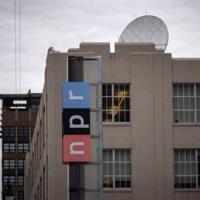1. Money is fungible, and an authorization from CPB doesn't have to get directed to buying programming (from NPR, APM, BBC, anyone in particular). Money received from CPB could be earmarked for transmitter electricity, or tower maintenance, or studio equipment -- (like this would be the first time that's happened) -- or any of a hundred other operating expenses. As you say, the program acquisition money can come from fund drives, underwriting (whatever revenue's left in that basket) or selling Nina Totenbags. Which would probably be an easier "sell" to on-air listeners that updating the board, for instance.
2. The problem with what you say about the president is we're assuming a normal, rational president. We currently have one of those, and there's a better-than-even chance the electorate, in its collective wisdom, is going to kick him to the curb in favor or the lunatic who aches to become our Dictator-in-Chief. If that happens, *all* bets are off. (The title of his niece Mary's 2020 book was even more prescient than any of us realized at the time: Too Much, and Never Enough: How My Family Created the World's Most Dangerous Man.) He wants to be able to do extra-legal embargoes of authorizations from Congress, and I have little doubt he'd go after CPB, NPR, PBS and anyone else he and his nut-fringe supporters have any grievance with.



